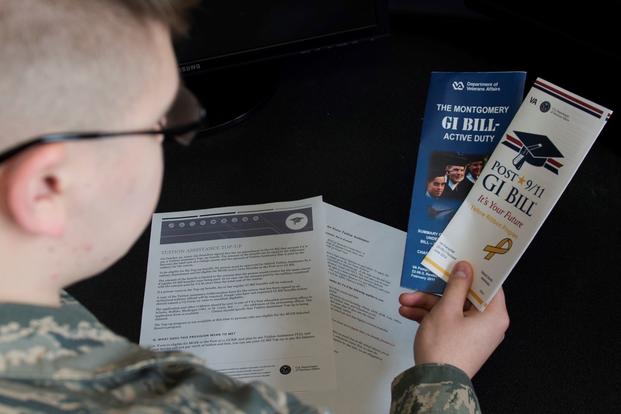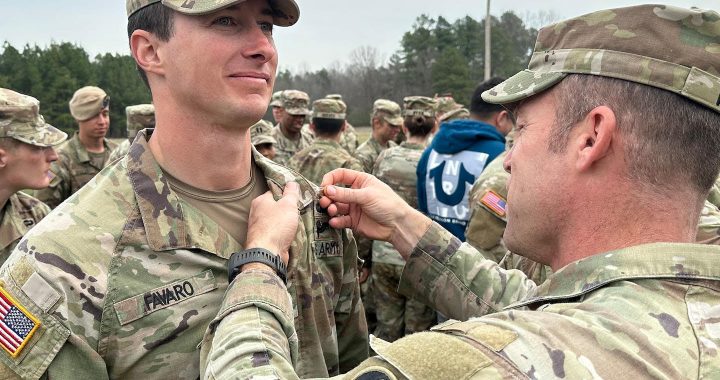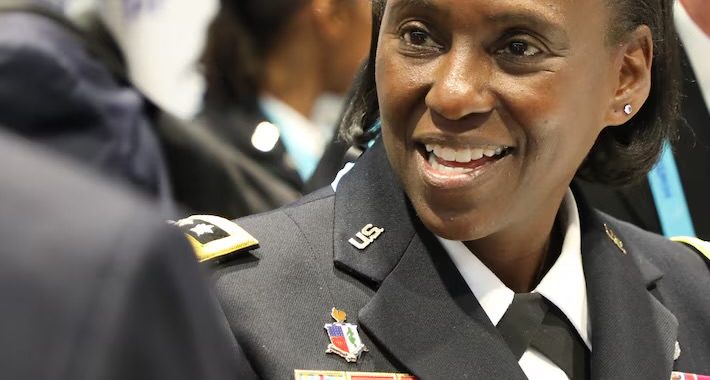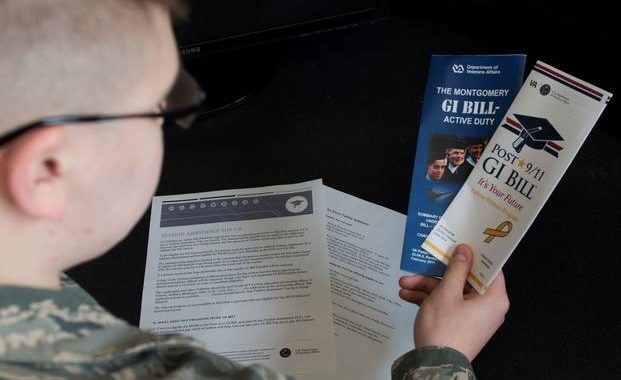Veterans Scammed Out of GI Bill Benefits Could Get Benefits Restored Under House-Passed Bill

Some veterans who were scammed out of their GI Bill benefits by shady educational institutions could have a pathway to getting their payments restored under a bill that passed the House on Tuesday.
The Student Veteran Benefit Restoration Act would allow the Department of Veterans Affairs to reinstate GI Bill benefits for veterans if their school engages in fraudulent behavior so that they can’t complete their schooling or were “deprived” of the expected value of their education. The bill would leave it up to the VA to determine the amount of benefits to restore.
The bill, which passed the House 406-6, still needs to be approved by the Senate before becoming law. But advocates for student veterans applauded its passage in the House as a key milestone in fixing an injustice facing those veterans.
“We are pleased that the House of Representatives took an important first step today in providing the secretary of Veterans Affairs with the authority to restore the GI Bill for student veterans who have been defrauded by unscrupulous schools,” William Hubbard, vice president for veterans and military policy at advocacy group Veterans Education Success, said in a statement.
Under current law, the VA can restore some GI Bill benefits in limited circumstances if a school closes or loses its GI Bill certification while a veteran is going to that institution.
But there’s no legal authority for the VA to restore benefits solely because of fraud. Advocates maintain that the circumstances under which veterans can have their benefits restored are too narrow and that the vast majority of defrauded veterans have no recourse.
The Biden administration has also canceled student loan debt for hundreds of thousands of Americans, including many veterans, who attended for-profit schools such as Corinthian Colleges and ITT Technical Institute that federal authorities found defrauded their students. For-profit colleges have been known to aggressively target veterans for their GI Bill benefits.
While advocates for student veterans have hailed the loan debt forgiveness, they have also pushed to have GI Bill benefits restored in order to make the swindled veterans whole.
Estimates vary widely on how many veterans would benefit from the bill passed by the House on Tuesday.
Rep. Delia Ramirez, D-Ill., the bill’s original sponsor, said “thousands” of veterans could be helped by the legislation.
“Access to quality education is one of the promises we have made to our veterans, and we have to deliver,” Ramirez said on the House floor Monday night.
But a Congressional Budget Office estimate published last year pegged the number of veterans whose benefits could be restored under the bill at about 40 annually at an average cost of about $26,000 each.
The office reasoned that “few students would be affected by such fraudulent behavior, and that some who are affected would have some benefits restored under provisions of current law or have enough benefits remaining to complete their education,” according to its report. Still, the office added that the question of how many student veterans could be affected was a “significant source of uncertainty.”
The bill approved Tuesday was a bipartisan compromise that was not as sweeping as Ramirez’s initial version, which would have more directly mandated that veterans’ education benefits be restored in the event of fraud. The compromise also added more protections for schools accused of fraud to appeal the VA’s decision that they are at fault.
“The GI Bill is one of the very best benefits a veteran earns for their service,” House Veterans Affairs Committee Chairman Mike Bost, R-Ill., said on the House floor Monday night. “No veteran should be unable to use their benefits to receive an education because a fraudulent school stole their GI Bill. However, adequate due process that ensures a fair system for both veterans and the school is necessary.”
While the compromise bill did not go as far as Democrats wanted, both Democrats and Republicans praised the legislation as a rare example of lawmakers still being able to work across the aisle and an important step in helping veterans. All six “no” votes came from Republicans.
Advocates also vowed to continue pushing for the full changes they originally sought.
“We look forward to working with the Senate and bicameral negotiators to ensure the new law is not merely a suggestion for the secretary to consider but instead definitively provides GI Bill restoration to all defrauded veterans,” Hubbard said in his statement. “The GI Bill is an earned benefit and should be more protected — not less — than Title IV federal student aid programs.”




